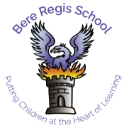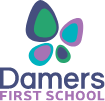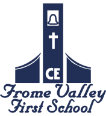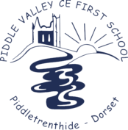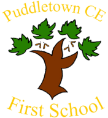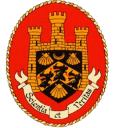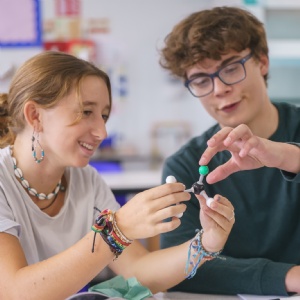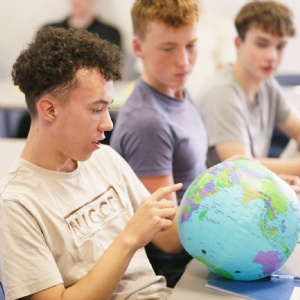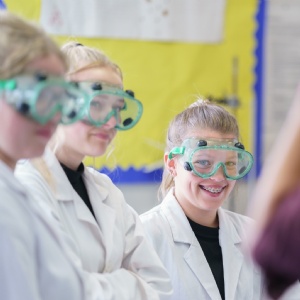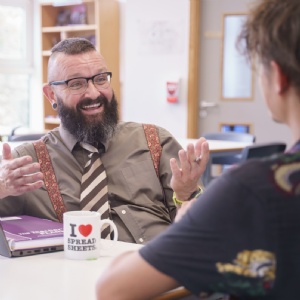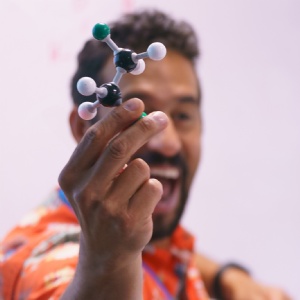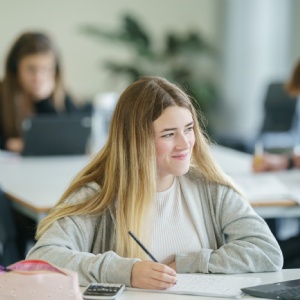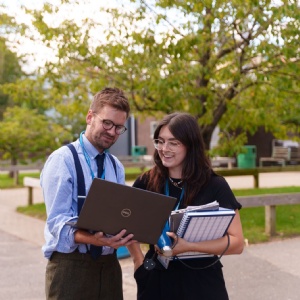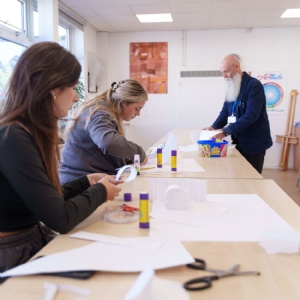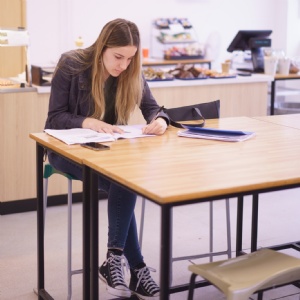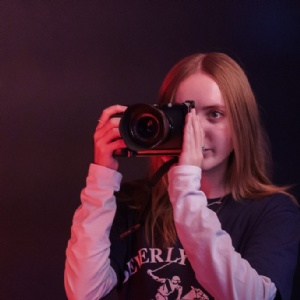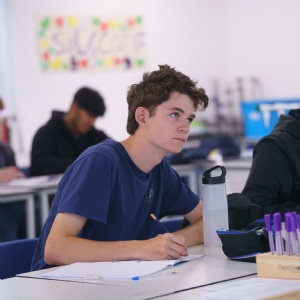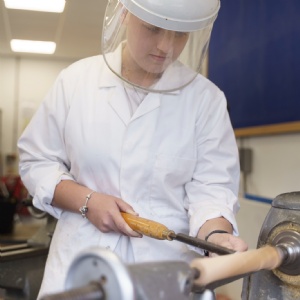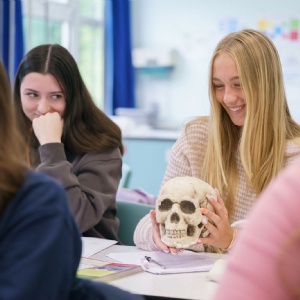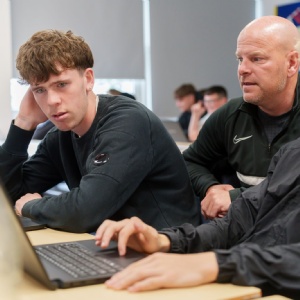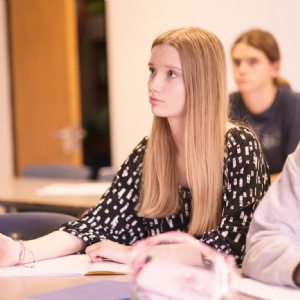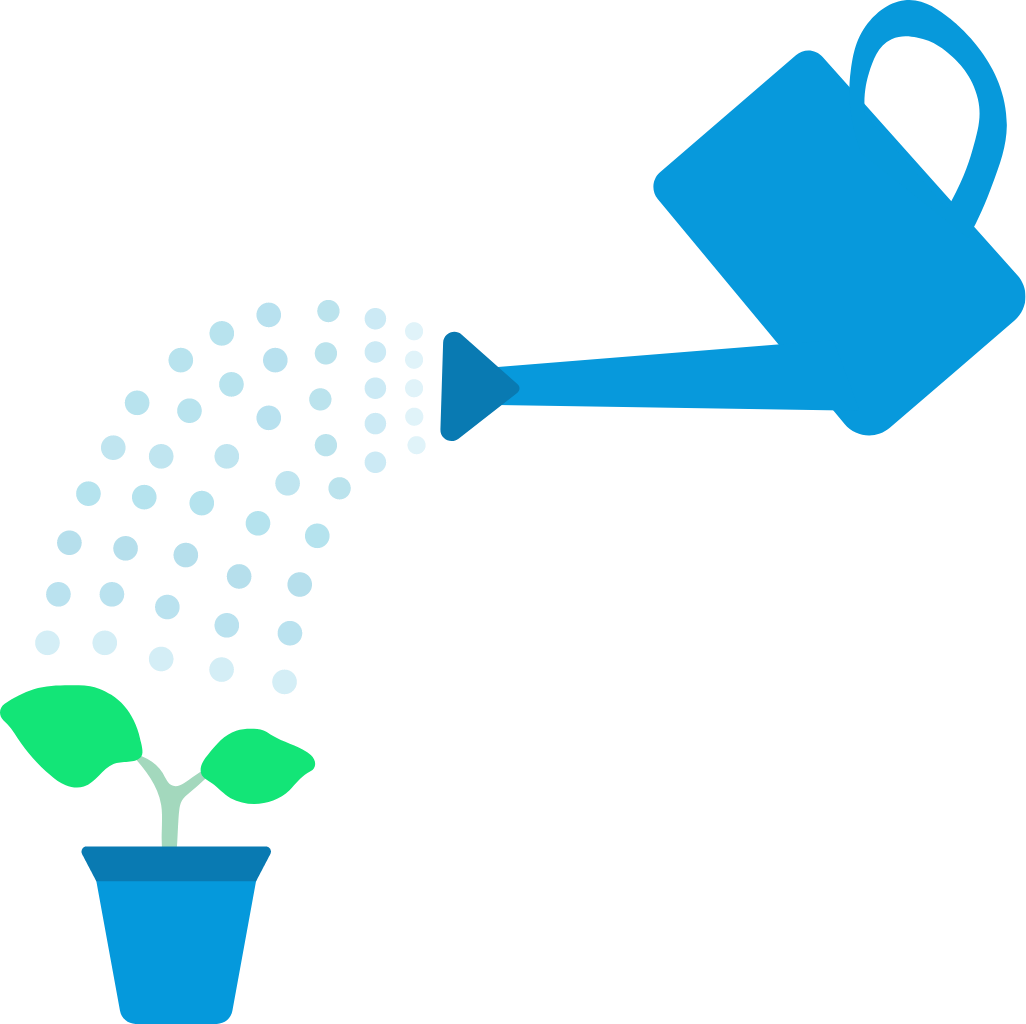
Curriculum
Sixth Form Calendar Overview 2024-25
Sixth Form Curriculum
The Sixth Form at The Purbeck School is designed for students in our community to:
- Provide a clear route to higher education/employment/higher level apprenticeships
- To equip them for future learning, independent living and employment
Students select 3 or 4 subjects to study from and are offered a variety of subjects in order to create as bespoke programmes as possible to meet their needs and aspirations. Students are also involved in an extensive careers and enrichment programme.
The school offers a Route A, and B pathway
- Route A is for the more traditional A level subjects and is accessed by students gaining 5 subjects at grade 5 at GCSE or above and a grade 6 in the subject that they have opted for.
- Route B is a less academic route, students are encouraged to access more vocational subjects by achieving grade 4 or above at 5 GCSE subjects.
Subjects on offer at The Purbeck School
- A levels – the facilitating subjects
- Biology, Chemistry, English Literature, Geography, History, Maths, Further Maths, Physics and Spanish
- A levels – further subjects
- English Language, Fine Art, Media Studies, Photography, Product Design, Sociology, Psychology
- 5 vocational courses
- Applied Science, Business Studies, Criminology, Health and Social Care, Sport(single or triple award)
- We also offer the provision to retake English and or Maths at GCSE
- Furthermore, students may take the EPQ course in addition to their other level 3 courses upon consideration of their suitability
The rationale for this curriculum offer is that it is the next stepping stone from our KS4 provision and offers a wide range of options for our own cohort of students. It is based on our year 11 students’ achievement and aspirations.
Year 12 Curriculum offer September 2025
|
Additionally, accredited EPQ, National Trust Leadership Award and LAMDA Drama courses run on Wednesdays.
The Student Intake
Our current Year 12 cohort of 94 students includes 84 internal applicants (exactly 50% of last year’s Year 11 and 45% of the cohort’s disadvantaged students) and 10 external applicants.
Sixth Form Academic Curriculum
- The majority of subjects have 9 hours of lesson time over a fortnight.
- Students are allocated approximately 5 lessons of Silent Study Time (SS) over the fortnight which is supervised study time.
- There are a number of areas where students can work quietly on their studies outside of lesson time. Students are expected in school all day with the exception of break and lunch. There is a flexi-time agreement for Year 13 students who are meeting their target grades and have gained approval from their subject teachers.
- All students are set a challenging minimum expected grade. Students are encouraged to learn independently outside of these hours via home learning and wider reading.
- Extra support is put in place at lunchtimes and after school sessions and our school prides itself on the accessibility of staff should a student need extra assistance.
The sixth form curriculum is monitored by SLT links, Teaching and Learning reviews, and by Head of Department interviews/lesson observations/learning walks/work scrutiny/student voice. The sixth form programmes follow a mastery curriculum with the introduction of more knowledge organisers, significant formative assessment as well as end of topic formal assessments and 3 whole school tracking points through the academic year. Staff are working towards a coherent and consistent planned scheme of learning in every subject which demonstrates how the curriculum is sequenced towards building sufficient knowledge and skills for future learning and destinations (accessed by all staff in the shared area).
Sixth Form Entry Requirements
|
Sixth Form Entry Requirements |
|
|
Vocational: Unitised courses with a strong practical element. Assessed throughout the course through a combination of examinations and coursework. To access this pathway, you will need to have a minimum of 5 grade 4s at GCSE level, including in English Language and Mathematics. Some courses may have additional requirements, please see subject guidance for more detail. |
|
|
A Level: Traditional courses in academic subjects. Primarily assessed through end of course examinations. To access this pathway, you will usually need to have a grade 6 (or in some cases a strong grade 5) at GCSE in the subjects you wish to study. Some courses may also have additional requirements, please see subject guidance for more detail. |
|
|
Applied Science |
|
|
Applied Tourism |
|
|
Biology |
|
|
Business Studies |
|
|
Chemistry |
|
|
Criminology |
|
|
English Language |
|
|
English Literature |
|
|
Fine Art |
|
|
Further Maths |
|
|
Geography |
|
|
Health and Social Care |
|
|
History |
|
|
Maths |
|
|
Media Studies |
|
|
Photography |
|
|
Physics |
|
|
Product Design |
|
|
Psychology |
|
|
Spanish |
|
|
Sport |
|
|
Sociology |
|
Personal Development
Vision Statement: Sixth Form Personal Development Programme
Our vision is to grow each individual student, ensuring that, during the ‘bridging’ period when studying at Purbeck, they develop the skills, knowledge, and mindset necessary to thrive in an ever-changing world. We strive to cultivate resilient, self-aware, and socially responsible individuals who are prepared to lead and innovate with integrity. Through holistic development, we aim to inspire lifelong learners who are passionate about personal growth, committed to their communities, and equipped to make meaningful contributions to society. Our programme nurtures curiosity, fosters emotional intelligence, and encourages a spirit of collaboration, ensuring every student moves forward as a confident, well-rounded individual ready to embrace the challenges and opportunities of the future.
Personal Development
The Purbeck School Sixth Form facilitates students' personal development through a range of activities, both within the tutor programme and in our enrichment offer. Indeed, our ‘Grow’ ethos, consistently draws our students’ attention to the importance of developing their experiential knowledge and skills, as well as those related to their academic study. Activities are matched against the PSHE Association’s Programme of Study (KS5) and are audited to ensure that progression from key stage 4 has made for each learning opportunity in each core theme.
Pastoral Care
Students are supported in their development through a pastoral system, including their tutor, head of year and our sixth form centre manager. These role models provide excellent examples of how to become positive members of a community.
The Tutor Programme
Our tutor programme includes sessions which support student growth in many key areas of maturing into adulthood:
- Monday AM: Personal Development – A comprehensive programme including the following, which is linked to the weekly sixth form bulletin and delivered by the tutor team. The programme is taken from the PSHE association scheme of learning, resourced through the Cre8Tive VI Form package:
- Self-concept
- Mental Health and Emotional Wellbeing
- Healthy Lifestyles
- Managing Risk and Personal Safety
- Sexual Health
- Drugs, Tobacco and Alcohol
- Relationship Values
- Forming and maintaining respectful relationships
- Consent
- Contraception & Parenthood
- Bullying, Abuse & Discrimination
We also look to cover topical issues such as drink spiking, laughing gas misuse, etc… as well as having external agencies come in to deliver sessions such as Save Drive Stay Alive
- Tuesday AM (Year 12) Wednesday AM (Year 13): Assemblies – These focus on key messages, such as resilience, perseverance and work ethic, and also embrace topical cultural and societal events and topics.
- Tuesday PM (Y12); Wednesday PM (Y13): Mentoring – Our mentoring system allows each student to be supported in their development with one to one sessions with their tutor every term. The sixth form management team deliver our Wider Perspectives content to the remainder of the tutor group.
- Wednesday AM (Y12) Thursday AM (Y13): News – We encourage students to think critically about current events and give them the opportunity to learn about what life is like in other countries and cultures.
- Thursday (Y12) Tuesday (Y13): Tutor Theme – Each half term we have a different tutor theme, which focus on a key area of personal development. These include:
- Preparing for work experience: Work on writing a CV, interview technique and health and safety in the work place.
- Leadership: Preparation for our student leader roles as well as developing students’ ability to work as part of a team.
- Debating: Encouraging students to consider other people’s points of view and to argue critically on a subject.
- Presentation: Building students’ self-confidence by asking them to prepare and deliver a presentation in front of a body of people.
- Revision: Giving students the tools to prepare for their examinations
- Progression: Work on securing a place in further education, including an apprenticeship or university course. This with reference to visiting speakers (e.g. Bath University) and the employment of Unifrog.
- Friday AM: Progression – These sessions are designed to give students the opportunity to think about their future plans. This includes information about university courses, apprenticeships and career related employment. The comprehensive programme Unifrog is employed at specific times as students develop their own individual post-18 plans. On Friday afternoons we maintain the tradition of enjoying cake and a quiz.
Religion, equality and wider understanding
In Autumn 2024 we welcomed The Many Faiths Together Team, who delivered an informative and wide-ranging interactive session to both year groups:
This project brings together 5 Community Leaders representing, Buddhism, Christianity, Humanism, Islam and Judaism, to share a multi-faith and world view perspective on global issues and dilemmas. We will create safe spaces to talk, treating each other with respect, while listening to different views. We will encourage conversations between those of faith and no faith to find our shared values of respect, empathy and well-being.
Additionally, our Wider Reading input (Tuesdays and Thursdays – delivered by sixth form staff leadership team) includes a programme of articles about belief systems and recognised historical figures, which are supported by extension videos, podcasts and book recommendations. This is supplemented by sixth form leader-delivered assemblies marking traditional religious festivals including Rosh Hashanah, Diwali, Advent, Eid al-Fitr and Guru Nanak Dev.
We actively encourage students to engage in social and political thought. In the Spring Term of 2024 we hosted a hustings in advance of the general election, with representatives of the Conservatives, Labour, Liberal Democrats attending a Question Time type event for Years 12 and 13. Subsequently, the elected MP Vikki Slade visited us in February 2025 with a presentation about her career and life in parliament followed by a Q and A session, again with Years 12 and 13.
Progression
As well as our tutor progression sessions, we have a dedicated UCAS and apprenticeship advisor who supports the students in securing the next step in their education.
Enrichment
Giving students the opportunity to develop further their knowledge, interests and skills, this rich programme is designed to allow students to develop their experiential side, offering them a range of activities, most of which are completed on a termly rotation following the completion of student preference forms. The offer has been improved through student voice, which has suggested content such as cooking, finance and first aid, all of which have been added to the offer.
The 24/25 offer is added as an appendix to this document.
Additionally, some students have secured separate enrichment experience which takes places on Wednesday afternoon. Such placements include working with the RSPB at the nearby Arne Nature Reserve. In Autumn 2024 we will launch a leadership qualification with The National Trust which includes the awarding of 8 UCAS points.
The Year 13 Leadership Team
This consists of a broad body of leaders; each position is substantial and includes a job description which supports both the student and associated staff in providing a time-specific framework intended to secure strong experiential and practical outcomes. The roles include the following: four House Captains; a Welfare Leader; Wellbeing Leader; Equality and Diversity Leader; Publicity Leader; Social Event Leader; Charity Leader; Student Voice Leader; Inter-house Leader; other supporting prefects.
To gain these positions of responsibility the students complete an application and interview process and, if successful, attend weekly minuted meetings with their associated head of year.
Work Experience
Every student is supported in securing a week’s work experience which occurs in the Summer Term of Year 12. In addition, all Year 12 students prepare for and complete a mock interview with local businesspeople.
Please see the ‘logo sheet’ which gives examples of external organisations that our students engage whilst studying at The Purbeck School Sixth Form.

Appendix
VI Enrichment Offer 2024/25
You will pick any three from the following, but you must pick three.
The National Trust Leadership Skills Award
The National Trust are working with Purbeck VI to bring essential leadership skills to life through a practically applied qualification, empowering learners with the confidence to believe, the qualities to lead and the skills to succeed. Do you have ambitious hopes and inspirational dreams of how you can change the world around you? This award takes your optimism and determination to generate the impact you want to have by delivering a project for positive change. Successful learners attain a Level 3 leadership award and 8 UCAS points.
Finance with Mr Waterman
Learn more about the nuts and bolts of personal finance with Mr Waterman, including saving, borrowing, tax, financial security and making the most of your money. A course supported by Martin Lewis’ ‘Your Money Matters’.
Cooking on a Budget with Mr Eden
In the not too distant future you are more than likely going to start buying and coking your own food – some may already be doing this.
Being able to plan and prepare food that is tasty and nutritious and affordable is such an important life skill. The aim of this enrichment is for it to be a fun practical session where you will make food that is easy to make and tasty as well as being low cost. You will be provided with a recipe booklet to take home that not only includes a great variety of recipes but some hints and tips to help you. You may be asked to bring in some additional ingredients to compliment the dishes we will make. Any dietary needs can be accommodated and this will be discussed in the first lesson.
EPQ with Miss Wetherall and Mrs Armstrong
EPQ is short for Extended Project Qualification. An EPQ is an independent research project. It involves you independently researching a topic of interest which is not covered in your A Levels and writing an essay of 5000 words (that's around 10 typed pages). As the project evolves, you must complete a production log to record specific stages of the project and this also contributes to your project result. The third component of the project is an oral presentation. Generally, the whole process from start to finish takes about 120 hours. It will require you to research your topic of interest out of the EPQ sessions. You will be expected to attend each session where your supervisor will discuss your progress and guide you through the stages of the project. It is the equivalent of half an A Level. If you choose EPQ, this will be your sole enrichment for year 12 and 13.
Art/Craft/DIY with Mrs Field
Would you like to see exciting and colourful spaces in and around school? Do you want to make your mark and create a legacy of your time at The Purbeck School? Then this enrichment opportunity is for you.
Join us to make spaces in and around The Purbeck School a little brighter, happier and inviting. We will work together to design murals, sculptures and banners that will invigorate spaces in the school. You will learn transferable skills such as design and problem solving, and develop practical skills that you can use to create your own exciting spaces at home.
Music with Mr Burns
Do you play an instrument or enjoy singing? If so, this is a perfect opportunity for you to utilise and develop your musical skills whilst having fun. We will be forming a band (or bands), to rehearse together each week and develop your instrumental and ensemble skills. Once we have prepared some high-quality music then there will be opportunities for some/all of you to perform around the school or local community. Develop crucial employability skills of creativity, teamwork, communication and problem solving. We will be open to suggestions about songs and styles you want to learn and perform together.
Environmental Change with Mrs Robinson
Are you interested in making a positive impact on our environment? We will be doing a range of activities that centre around improving biodiversity, and raising awareness of environmental concerns and small changes that can be made to make a difference. This will involve working with several local community groups and organisations.
Arts and crafts with Miss Stewart
Do you fancy doing something fun? Do you want to do something creative? Do you want to spend Wednesday afternoons relaxing and taking a break from your academic work? If the answer is YES, then come and do something artistic or crafty.
What are the benefits to your mental health:
- Provide relaxation. Relief from stress.
- A sense of accomplishment. Reduce feelings of anxiety.
- Enhance feelings of confidence. Improve cognitive abilities.
- Increase social skills and interactions
What sorts of things will we do?
- Colour for mindfulness Make cards for Christmas etc.
- Pom-pom making Cross-stitch
- Origami
Boardgames with Mr Nicolaides/Mr Wilde
Do you like playing games? Would you like to compete against your peers… and win? Do you want to have fun on Wednesday afternoons?
If so, boardgames are for you.
How will you benefit from playing boardgames?
- Increase your brain’s function. Reduce stress and have a laugh.
- Enhance creativity and self-confidence.
- Improve social skills. Learn how to think strategically, set goals and develop patience.
What will you learn?
- Discover how to reduce reliance on luck, or chance; instead you will develop an adaptable, methodical strategic approach to playing games.
Games will include traditional and well-known ones such as Risk, Monopoly and Mastermind, as well as the introduction of contemporary ones such as Mind Genius.
Stretch and Breathe with Mrs Pike
Join me to calm your body and mind. We will look at relaxation techniques and use yoga style stretches. You will need to wear comfortable clothing.
Film Club with Mr Clay
We aim to view seminal and classic films and the film itself is very much the group’s decision. Either way, it is a very enjoyable and relaxing way to spend an hour escaping the stresses and strains of school work.
Primary teaching organised by Mr Holmes
Experienced gained by volunteering is highly-prized by future employers and higher education providers. This enrichment offer will see you helping to plan educational sessions in our partner primary schools including those in Wareham and Stoborough (unfortunately some are too far away to make it viable). You may spend an afternoon reading 1:1 with students in Year 3 or 4, or co-leading a Maths or Science workshop for Years 5 and 6. Maybe we will even get to do potato printing!
If you are interested in working with young people in the future then this might be the enrichment option for you.
Sport with Mr Smith
Whether you are a sports fanatic, or just want to feel healthier, this is the enrichment for you! We will coach you in getting fitter with a multitude of team sports. By the end of the enrichment cycle you will hopefully be able to run continuously for 30mins or longer, and will feel fit and healthy. You will also have had the opportunity to test yourself against not only your peers, but Mr Smith and Mr Tullett, in a variety of sports!
Other enrichments that we will run separately to the Wednesday programme:
Gap Year Club with Mr Holmes (Thursday lunchtimes E11)
Presentation and Interview Skills with Mr Dunn (tbc)
CPR with Mrs Scott (this will be delivered a tutor group at a time)
TEFL accredited qualification – two days annually in July during the summer holidays (Mr Holmes)
The Sixth Form Careers and Enrichment Curriculum
-
Our organisation is underpinned by fundamental British values and we aspire for all our students to develop their understanding of the wider world as well as academic skills and knowledge. We run a full enrichment and careers programme.
Students register first thing in the morning and have 15 minutes of tutor time every day at 8.45am and 1.45pm. A rich set of experiences is provided through the tutor programme, enrichment sessions and extra-curricular activities, for example:
- All year 12 undertake work experience for a week in addition to students undertaking work experience/extra curricular activities related to their courses. Year 12 and 13 students can undertake work experience every Wednesday afternoon.
- All Year 12 students have a mock interview (carried out by our employer contacts) and further bespoke interview practice is provided in year 13 for students on application to specific courses post 18 or apprenticeships (apprenticeship and UCAS workshops are also run).
- We have a dedicated careers programme organise of university and apprenticeship presentations, student leadership assemblies, and trips and visits including to the Bournemouth University UCAS fair.
- We run a ‘Speakers Programme’ inviting a number of people from commerce, industry, charities and the public sector to talk to our students; e.g. local MPs, Dorset Police, the NHS and former students who share advice and experiences from their own post-18 pathways.
- We encourage every student to take some form of school or community responsibility/leadership and out students demonstrate highly positive attitudes to their education and community. There is a student leadership team of twelve Year 13 students who each have dedicated roles and responsibilities, and meet weekly as a cabinet.
- Students take part in a full tutorial programme and scheduled mentoring activities.
Sixth Form Curriculum – Results
The majority of students have been successful in achieving their first choice at university and a number have gone on to secure higher level apprenticeships in companies such as J P Morgan, Wessex Water, Sunseeker, ExxonMobil, and Perenco. Our Oxbridge entrants include students going on to read Medicine at Oxford, Biochemistry at Oxford, English Literature at Cambridge. We have a productive relationship with Canford School, through which our students may access extended guidance related to Oxbridge applications.
Students are also supported in following courses such as Exeter University’s ‘Pathways to Law’, which can lead to them being offered lower application tariffs upon applying for related courses.
From the 2024 cohort:
- 57% of pupils continued into higher education
- 26% of students chose to take a gap year, with many holding university places to commence in 2024
- 8% took up and apprenticeship
- 5% took up employment
- 1% continuing in further education
The Options Process
Students need to complete an application form for The Purbeck School Sixth Form. All students who have applied to The Purbeck School will be invited for interview. The interview allows us to have an informed conversation with your child about how well their choices fit with their future plans.
Subject choices are not easy and students should be encouraged to take subjects that they are good at, enjoy and will lead them to their future university, apprenticeship or career direction. Subject choices are also shaped by:
- The grade requirements for each Sixth Form subject chosen. Please refer to the minimum entry requirements document here for help with this.
- Choosing a maximum of one subject per column in the Year 12 curriculum offer document here. Students usually choose a maximum of three subjects, though some may elect to study an additional fourth subject – this would be discussed at interview.
Who else can help?
The School Careers Advisor is available in the Learning Resources Centre to give advice and guidance to students on Tuesday and Wednesday in Room 11. Should your child wish to make a one-to-one appointment they should email Mrs M Beale at: mbeale@purbeck.dorset.sch.uk or Mrs M. Scott at: mscott@purbeck.dorset.sch.uk
The Purbeck School: Planned hours funded by the ESFA (16-19 funding)
In accordance with The Education and Skills Funding Agency guidelines (last updated June 2018), the activities in each student’s study programme in an academic year constitute the planned hours. Each student’s planned hours are agreed between the institution and the student at the start of their study programme.
Planned hours constitute all the qualification planned hours and the non-qualification planned hours.
Planned hours are timetabled by the sixth form, and at The Purbeck School Sixth Form they include:
- planned teacher-led activity on courses leading to qualifications;
- planned hours of tutor time and assemblies (as outlined in the Purbeck School Sixth Form Personal Development document).
Non-qualification hours
These are hours of fundable activity that are not used to take externally certified qualifications. These hours are also known as planned employability, enrichment and pastoral (EEP) hours.
EEP hours include activities that are relevant to the study programme and:
- do not count towards a qualification as defined above
- are for informal or in-house certificates
- are for tutorial purposes
- are spent on work experience and other work-related activities
- are spent on enrichment, volunteering and/or community activities organised by or on behalf of the institution.
At The Purbeck School Sixth Form they include:
- planned hours on other activities including weekly enrichment on Wednesdays.
At times according to individuals, other examples of activity that count towards EEP hours are:
- tutorials and any one to one sessions such as to plan study or revision
- mentoring and coaching
- revision hours, structured revision, exam test papers
- informal certificates such as citizenship awards or Duke of Edinburgh Award
- work experience and work-related activity such as preparing CVs and practising interview skills and techniques
- field work or a piece of work such as a survey/research which is integral to the study programme, such as a field trip with a task attached
- completing applications for jobs or university where a tutor is supporting and helping the student
- employer visits arranged by the institution
- university visits arranged by the institution
- volunteering activities and community activities
- any activities that offer enrichment to the student such as personal and social development


